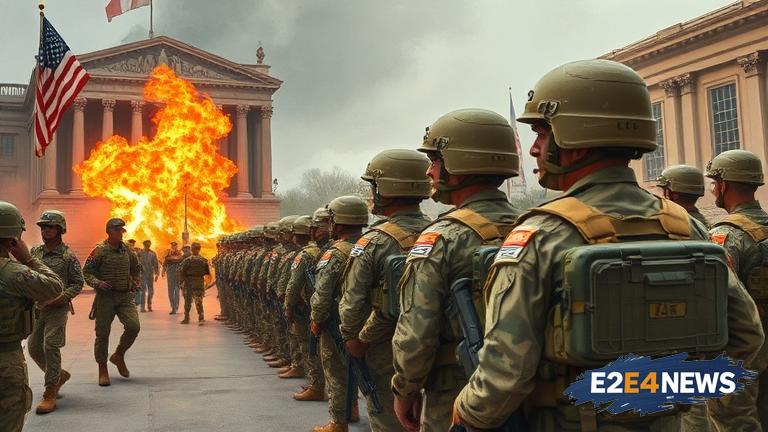The recent deployment of National Guard troops to various democratic cities across the United States has sparked widespread controversy and debate. The move, which was announced by the federal government, has been met with resistance and criticism from local officials and residents. Many have expressed concerns about the potential for militarization and the erosion of civil liberties. The deployment has been justified by the government as a necessary measure to maintain law and order, but critics argue that it is an overreach of federal authority. The cities affected by the deployment are predominantly democratic strongholds, which has led some to speculate about the political motivations behind the move. The National Guard troops have been tasked with supporting local law enforcement and providing security for key infrastructure and public events. However, many residents are skeptical about the need for such a deployment, citing the lack of evidence of any significant threats to public safety. The controversy has also raised questions about the role of the military in domestic law enforcement and the potential for abuse of power. Some have drawn comparisons to the civil rights era, when military troops were used to suppress peaceful protests and demonstrations. The deployment has also sparked concerns about the impact on community relations and the potential for increased tensions between law enforcement and residents. Local officials have called for greater transparency and accountability, arguing that the deployment was imposed without adequate consultation or consideration for the needs and concerns of the affected communities. The controversy has also highlighted the deepening divide between the federal government and democratic cities, with many viewing the deployment as an attempt to exert control and undermine local autonomy. The issue has sparked a national debate about the balance between security and civil liberties, with many arguing that the deployment is a threat to democratic values and principles. The situation remains fluid, with ongoing protests and demonstrations against the deployment. The federal government has defended the move, citing the need to protect public safety and prevent potential threats. However, critics argue that the deployment is a classic example of a self-fulfilling prophecy, where the presence of troops creates a sense of tension and instability, rather than addressing any underlying issues. The controversy has also raised questions about the long-term implications of the deployment, including the potential for a permanent military presence in democratic cities. As the situation continues to unfold, it remains to be seen how the controversy will be resolved and what the ultimate impact will be on the affected communities. The deployment has also sparked a renewed debate about the need for police reform and the role of the military in domestic law enforcement. Many are calling for a more nuanced approach to public safety, one that prioritizes community engagement and de-escalation techniques rather than militarization. The controversy has also highlighted the need for greater transparency and accountability in government decision-making, particularly when it comes to issues of national security and public safety. Ultimately, the deployment of National Guard troops to democratic cities has raised fundamental questions about the nature of democracy and the balance between security and civil liberties.
